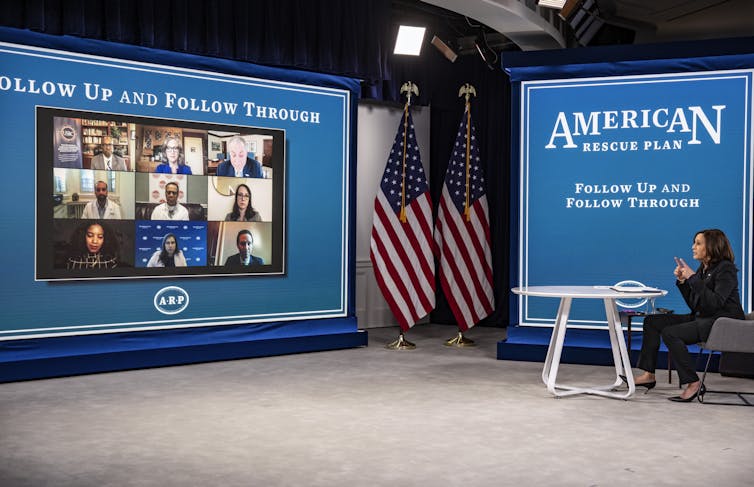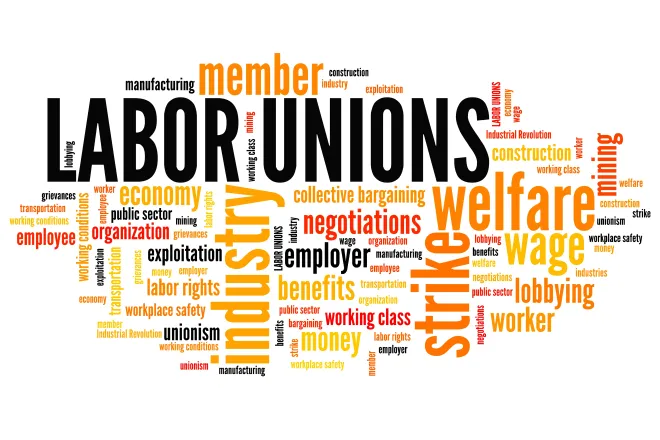
State lawsuits over stimulus tax rule face uphill battle
© iStock - Ligorko

Jonathan Entin, Case Western Reserve University
States were told by the federal government that they can’t use pandemic relief funds passed by Congress in March to lower taxes. In response, 16 states have filed lawsuits challenging the constitutionality of that restriction in the US$1.9 trillion legislation, known as the American Rescue Plan Act of 2021.
The rescue plan makes $350 billion available to state and local governments over the next four years to cover costs associated with COVID-19. It guarantees every state at least $500 million, but more can be provided based on unemployment numbers and poverty rates.
The law, however, forbids states from using this money “to either directly or indirectly offset a reduction in net tax revenue” over those four years. In other words, rescue plan money cannot pay for state tax cuts.
That restriction prompted the lawsuits, which are pending in Ohio, Arizona, Missouri and Alabama federal courts.
The states claim that the rescue plan’s policies violate the 10th Amendment, which helps define the relationship between the federal government and the states.
Historically, the Supreme Court has interpreted this provision to prevent the federal government from directing state policy rather than to limit what the feds can do themselves.
The rescue plan might run afoul of the 10th Amendment if it dictated what laws state legislatures must or must not adopt. That would mean states could use the federal money to offset tax cuts.
But as a constitutional law professor who has written extensively about federal powers, I think it’s unlikely that the rescue plan violates the 10th Amendment. That’s because it does not order states to do anything.
Supreme Court precedent
In 1992, the Supreme Court declared that a federal law ordering states to pass legislation for the safe disposal of nuclear waste violated the 10th Amendment. And in 2018 the high court struck down the Professional and Amateur Sports Protection Act, which forbade states from authorizing sports betting.
But the rescue plan does not explicitly require or forbid states to enact legislation, as the nuclear waste and sports gambling laws did.
It offers states a deal: If you want federal money, you can’t use it to subsidize tax cuts. States get to choose whether they prefer tax cuts or federal funding. So I believe the 10th Amendment challenge will likely fail.
The plaintiff states rely more heavily on a claim that the tax provision imposes an unconstitutional condition on receipt of their funds. They have two main arguments.
The states assert that the law forbids them from cutting taxes, even though it does not.
They rely on the Supreme Court’s decision to overturn a provision of the Affordable Care Act that withheld all federal Medicaid funding from states that refused to expand the health coverage program.
This was a real penalty: The feds were already providing more than half of all Medicaid money and would pay virtually all of the additional costs of expanding the program. States that refused to expand Medicaid would get no federal Medicaid money at all, leaving them much worse off than they were before.
But the rescue plan does not put the states in a worse position.
The rescue plan seeks only to make sure that the federal spending goes to cover the costs of the pandemic. It imposes a condition on federal spending, something that the Supreme Court has consistently approved.
Funds for pandemic expenses
The rescue plan tax provision more closely resembles a law that withheld federal highway money from states that had a drinking age below 21. The Supreme Court upheld that law in 1987.
The Supreme Court recognized that a condition could be unconstitutionally coercive. But it dismissed that concern because states would lose only 5% of their highway money if they failed to raise their drinking age. Every state except South Dakota complied with the condition.

The same principle should apply here. The rescue plan withholds federal relief if the funds offset state tax cuts. The feds need not provide any relief, but it can make sure that the relief it does provide is used to defray pandemic expenses.
The plaintiff states also maintain that the broad scope of the rescue plan’s tax provision – which covers “direct or indirect” reductions in net tax revenue, such as by lowering tax rates or providing tax rebates – makes its coverage ambiguous. That, states claim, violates the requirement that conditions on federal spending be “clearly stated.”
But at least one state, Missouri, concedes that the provision simply forbids applying stimulus money “to offset a specific tax reduction of a similar amount.” That concession could hurt the states in court.
And Treasury Secretary Janet Yellen has authority to promulgate regulations to clarify any ambiguity. She recently issued guidance under the law, stating that changes to state tax laws that take account of recent changes to federal tax law will not be treated as tax cuts under the rescue plan.
[The Conversation’s Politics + Society editors pick need-to-know stories. Sign up for Politics Weekly.]
Other payment methods
Suppose, however, that the rescue plan does have a broader sweep.
States still could provide economic help to their residents and keep all of their COVID-19 money. They could do so by using ARPA money to pay people directly instead of reducing their taxes.
Maybe states should be careful not to label those payments as rebates, which might run afoul of the restriction. But they could avoid that problem by calling them, in the rescue plan’s words, “assistance to households, small businesses, and nonprofits” and “aid to impacted industries.”
However these cases get resolved, we should view them as the latest round in the political battle between the states and the federal government over contentious federal policy.
Legal doctrines might evolve, but in many respects these lawsuits are really performances: They allow state officials to score political points with their constituents, whether or not their legal arguments ultimately prevail.![]()
Jonathan Entin, Professor Emeritus of Law and Adjunct Professor of Political Science, Case Western Reserve University
This article is republished from The Conversation under a Creative Commons license. Read the original article.
















